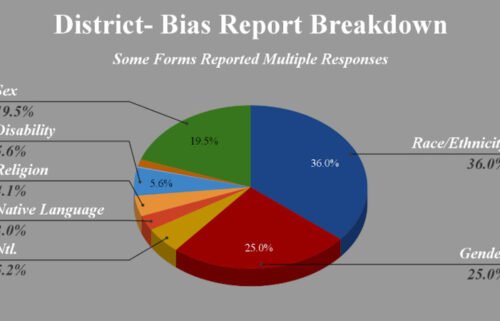Judge OKs settlement of ODOT ADA lawsuit

A U.S. District Court judge approved a landmark settlement agreement Monday between people with disabilities and the Oregon Department of Transportation that holds the promise of making communities throughout the state more inclusive of people with physical disabilities, the lawsuit’s supporters announced.
The agreement — the largest commitment to accessible transportation in state history–compels ODOT to make street crossings safer across the entire state highway system. Specifically, ODOT must install missing curb ramps, fix substandard ramps and upgrade crossing signals. These improvements are critical for connecting parts of communities that have been difficult or unsafe to access and for enhancing safety along highways.
People who voiced their complaints about unsafe street crossings included: a Clatskanie woman who was cut off from the grocery store and city hall because of a curb ramp slope that was too steep; a Portland woman who relies on public buses to travel to medical appointments and socialize with friends who could not reach the crossing signal buttons at numerous intersections; and a Bend man who was forced to wheel his chair in the bike lane along the busy road due to missing curb ramps.
“As a grass-roots network of people with disabilities across Oregon, we are pleased that consumer advocacy resulted in this agreement ensuring more accessible communities for all Oregonians,” said Barry Fox-Quamme, board president of the Association of Oregon Centers for Independent Living, which helped bring the suit on behalf of the communities of people with disabilities across the state that it represents. “The voices of people with disabilities play a vital role for achieving enduring systems change.”
ODOT will give high priority to missing curb ramps and existing ones that present a barrier to access as a result of having: a too-steep slope that puts them at risk of losing control of the wheelchair; a lip at the bottom of the ramp that’s too high, potentially stranding people with wheelchairs in the street; and insufficient space for a wheelchair to turn.
“This landmark agreement means people who use wheelchairs won’t be forced to choose between navigating their chairs in traffic on busy highways or remaining isolated in their homes. For people with physical disabilities, being able to safely cross the street is prerequisite for being integrated into their communities,” said Kathy Wilde, litigation director with Disability Rights Oregon. “From trips to the grocery store to traveling to doctor’s appointments and socializing with friends, this agreement will enable more Oregonians with physical disabilities to participate fully in community life.”
More than 20 years ago, the Americans with Disabilities Act (ADA) put into law requirements that states must provide accessible curb ramps where pedestrian walkways cross curbs and provide accessible pedestrian crossing signals at curb ramps with traffic lights.
But more than two decades after the ADA went into effect, individuals with physical disabilities across Oregon still found that they were barred from some of the most important streets of their cities and towns by badly-constructed or missing curb ramps.
Early last year, the Association of Oregon Centers for Independent Living (AOCIL)–a statewide group representing the interests of seven communities of people with disabilities–along with eight individuals with mobility and visual impairments, filed suit against ODOT demanding that the state agency build and maintain accessible curb ramps and pedestrian signals across the state pursuant to its federal obligations. At the end of last year, the plaintiffs and ODOT reached a settlement agreement.
Agreement highlights include: ODOT will complete audits of all curb ramps and pedestrian crossing signals along state highways by the end of this year. Within five years, the state agency will complete curb ramp upgrades at 30 percent of the locations identified in the audit, and within ten years, 75 percent. ODOT must fix all of the curb ramp locations identified within 15 years. Following the crossing signal audit’s completion, the parties will negotiate a timeline for making improvements to the crossing signals identified.
To ensure that people with disabilities have safe and accessible routes to travel during construction, ODOT will provide temporary routes that are accessible to pedestrians with disabilities through and around work zones. ODOT will also try to provide at least 10-day notice prior to the beginning of construction, and work with towns and cities to ensure there is sufficient signage about the alternative routes.
Complaint/Comment Process : To request curb ramp improvements and audible signals, or report problems with access, people can use the ” ADA Accessibility Requests” complaint form on ODOT’s website.
About The Association of Oregon Centers for Independent Living
The Association of Oregon Centers for Independent Living (AOCIL) is a statewide association representing a network of seven accredited Centers for Independent Living. Its mission is to lead the consumer-driven Independent Living Movement by supporting centers in its network, engaging in systems advocacy, promoting community education, and developing collaborative partnerships. AOCIL advocates so people with disabilities “can live independently, enjoy self-determination, make choices, contribute to society, pursue meaningful careers, and enjoy full inclusion and integration in the economic, political, social, cultural, and educational mainstream of American society.”
About Disability Rights Oregon
Disability Rights Oregon (DRO) has served as Oregon’s Protection & Advocacy System for 40 years, upholding the legal rights of people with disabilities. A statewide non-profit organization based in Portland, DRO’s mission is to promote and defend the rights of individuals with disabilities, including the rights of people with disabilities in jails and prisons. The organization envisions a society in which persons with disabilities have equality of opportunity, full participation and the ability to exercise meaningful choice.



